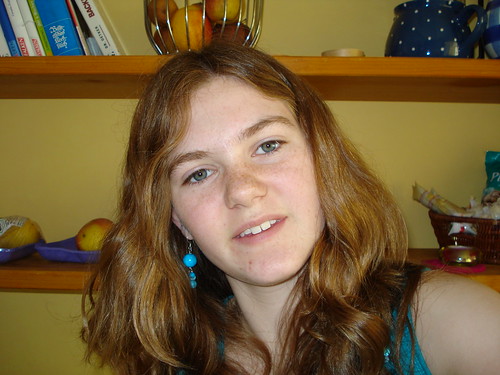A Maze Of Death - by Philip K. Dick
Monday, 01 .January, 2007, 16:59 -
English Entries,
Literature
It's the 32nd century, mankind has spread out all over the galaxy and the existence of God is no longer a question, but a proofed fact. People can radio their prayers to one of the three incarnations of God and some of them get an answer.
"
A Maze Of Death" is the story of thirteen people, who prayed to God, as they were unhappy with their jobs and their lives. They get the same answer: to go to the planet Delmak-O, where they will get further instructions. After introducing two of the characters in more detail, the story gets into motion when the group comes together in a small, lonely settlement on Delmak-O.
From the first moment on things go wrong. They cannot receive the instructions, that they were promised and find themselves captured on a strange planet, without a task to do, alone with themselves. One of the two leading characters gets killed on the first evening, strange mechanical insects appear and slowly the defects of the group members become apparent.
The story gets more and more mysterious. It is not clear, why the people are on Delmak-O, whether they are part of a bigger experiment or simply lost. Some group members are confused, others afraid and they drift apart, though they should stick together to find out more about their situation. They find a building, that appears different to each of them and meet a creature, that can answer their questions, but the answers sound like given by an ancient oracle and therefore do not help them any further. And whilst all this happens, more and more group members get killed.
After 150 pages it is hard to believe that Dick will be able to make any sense out of the story. There is too much mystery going on, too many people around and it is not clear, what the role of those group members was, that are already dead. It is the character of Seth Morley who keeps the story going, who has the most developed personality and to whom the reader can easiest connect to. And it is also the doubt about the religious mumbo-jumbo, the so bluntly stolen bits from all kinds of religions, that makes one turn to the next page, hopeing, that at some point their believes get revealed as illusions.
Dick puts the reader in the same state as his protagonists - the story seems hopeless and there is not much sense in going on. And then he lifts the curtain, puts a bit of action into his creation and voila - there is the answer.
"A Maze of Death" is not a common science fiction story. Dick does not care about the technological gadgets, he instead puts a sword and an old gun into the hands of his characters. Space ships and unknown planets are just used to create a scenario that is totally strange but, due to the futuristic setting, still in a way possible.
Philip K. Dick struggled in many of his books with the nature of reality and the idea of imaginative worlds. In "A Maze of Death" he draws a picture of human reality that is so sad, that the escape to a unreal place of uncertainty, fear and confusion seems to be the more desirable option, compared to living in a hopeless world.
The book gets a bit lengthy in the middle, but compensates for this in the end, although the expectations, that the reader might have in the beginning, will not be fulfilled. There are too many characters in the book and most of them stay one-dimensional. And: I read the German translation, which I can only recommend to avoid. I don't know whether the original version is written in a better way, but it is hardly possible to get any worse than what Uwe Anton (the translator) did to the book.
All in all, it is a readable book with a good attack on reality in the end. I give 6 out of 10 points to it.



